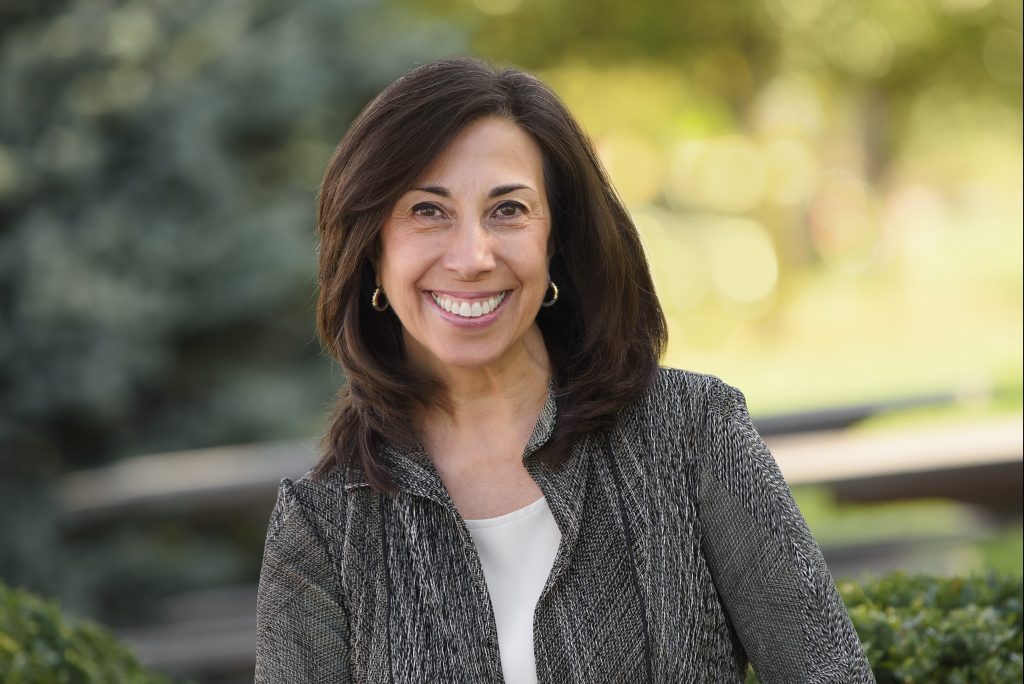Female Founder Interview – Claudia Freed, CEO of Non-Profit EALgreen
As part of our Female Founder series, The Startup Magazine caught up with Claudia Freed, CEO of the Wheaton Illinois-based nonprofit EALgreen. EALgreen’s unique and innovative mission takes on the problem of industrial waste by transforming surplus inventory into college scholarships.
Though technically not the EALgreen founder, as an immigrant student from Argentina, Ms. Freed received the first scholarship created from a sustainable-business model by the collaboration of EALgreen, WW Grainger, Inc. and North Park University. Bound by her commitment to give back and to help the environment, Claudia later took a leadership position in EALgreen, scaling the sustainability programs across the United States and, not only helping over 21,000 students with EALgreen-based scholarships, but also diverting over 100,000 tons of potential waste out of landfills.
As a true pioneer of the circular economy movement, Claudia is Technical Panel Member for UL STP3600 Standards, the standards for the Circular Economy and the metrics, processes, and procedures for the circularity of materials and operations. Some of her other accomplishments and accolades include: Crain’s Chicago 40-Under-40, Board President – Corporate Responsibility Group of Chicago, Co-Author Today’s Inspired Latina Volume IV, Co-panelist Global Summit of Women Sydney Australia, Speaker at International Summit China Association of Women Entrepreneurs, and Speaker at Global Summit of Women, Basel, Switzerland.
Ms. Freed is a global thinker and living proof that purpose-driven businesses transform lives. Let’s see what she shared with us about her inspiring journey…
TSM: Hello Claudia. To get us started, describe what EALgreen does in 10 words or less:
Claudia: With excess inventory, EAL funds scholarships for college students.
TSM: With a bit more detail, what does EALgreen do? What big-picture problems does it solve?
Claudia: At EAL, we believe that there is a better way to solve two seemingly disconnected issues: the problem of too many products being destroyed or landfilled and the life-disempowering barrier of prospective students not having the money to afford college.
Using supply chain principles, EALgreen builds a unique bridge between businesses and colleges and universities. Through the 5 R’s of the circular economy—Refuse, Reduce, Reuse, Repurpose and Recycle—EAL converts donations of customer returns and other excess inventory into operational savings for colleges. The colleges pass these savings to students in discounts on their tuition bills.
In 2021, EAL helped corporate partners keep 5,056 mt of products out of landfills. By redistributing these products to colleges and universities, EAL generated financial aid for 1,132 students seeking degrees from welding to healthcare, from engineering to robotics–the very subjects that will fuel economic development.
By utilizing onsite equipment, EAL reduced 38.90 mt of CO2 emissions. This demonstrates our commitment to improving reverse logistics and that becomes a key link to a better future for all.
TSM: What is an experience or two you’ve had that really shows the impact that EALgreen has on its participants?
Claudia: As the first ever beneficiary of a scholarship created from two donated motors, I can attest to the impactful and positive contribution an innovative business model such as EAL’s has had in my life. Not only have I witnessed generosity firsthand, but I have also realized innumerable benefits from earning a college degree.
The “being the first so others can follow” mindset has motivated me to remain dedicated to advancing the role of entrepreneurship and ingenuity in our quest as a society to improve lives and take care of the planet. Since the first scholarship in 1982, more than 21,000 students have seen their dreams realized and, hopefully, as I have, seen their lives improved.
TSM: EAL is clearly making a broad impact on many. But with the current supply chain crisis, are there new factors to consider that are hindering your efforts to make an impact for educational institutions? What kind of challenges are you facing of your own?
Claudia: Not all transportation challenges are the same. During the pandemic and beyond, we have seen carriers face significant driver shortages that affect our ability to have only one or two preferred partners to bring donations into our fulfillment centers. This action can create inefficiencies and add cost. The good news is that our outbound services to the schools, usually on an LTL basis (that’s for shipments that are less that a trailer load) have seen much less interruption.
TSM: Give us a bit more background on the EALgreen growth challenges. As the organization grew over the years, what were the additional challenges to making it a sustainable business of its own? Hiring? Getting visibility? Raising sponsorship funds?
Claudia: Having the ability to take the long view when running a business is essential to survival. For example, when we started, we had a different name because we thought we could solve all the world’s problems. By focusing on our mission and purpose, we have overcome challenges that plague businesses at each phase of their life cycle. This includes start up funding (our first balance sheet had less than $10,000, today we are over $5 million), branding and market positioning (in 2016 we became EALgreen to emphasize the positive environmental impact of our business), and digital innovation (in 2021 we invested in best-in class, integrated technology platform to track donations).
Throughout the decades, we have remained steadfast in our belief that we provide value to society and the planet. That single focus has enabled our resiliency and our ability to get better over time.
TSM: Going back to your early career decisions, tell us what factors influenced your decision to run a nonprofit and gave you the entrepreneurial passion that you apply to it?
Claudia:
When I became a 40 Under 40 awardee of Crain’s Chicago Magazine earlier in my career, the plaque read: “it was English, not organic chemistry that dashed her hopes of becoming a physician.” As an immigrant from Argentina, I took a career path based on opportunities presented to me by mentors and professors followed by my complete determination and arduous work. Once I became proficient in English, my professional journey took me from risk management to consulting and it eventually landed me back at the doorsteps of the very organization that had changed my life so many years before.
Being a CEO in the nonprofit sector requires tremendous energy and conviction that the business is worth doing. I learned that an organization’s size also matters as resources are always in short supply. Learning to say no to bad ideas, leading the team through difficulties–both personal and corporate– being inspiring, and adapting to new realities are some key aspects of being a leader in this space.
TSM: What is one piece of advice you can offer other entrepreneurs that want to follow a nonprofit path, on how they can be successful?
Claudia: Believe in yourself and be relentless in pursuing what makes your product or service worthwhile. Always take the high road—no half measures. Remember that your character will transcend every business decision you make, hire you make, and deal you win or lose. Finally, don’t let the job define who you are and keep intact the potential for reinventing yourself as part of your survival and purpose-driven life-kit.
TSM: That is great advice. Finally, can you tell us one interesting fact about you that people may not know?
Claudia:
During the pandemic I learned to play or “ring” handbells! I perform with my friends Leslie and Tom at their church although I am Jewish!
TSM: Fantastic! So nice to speak with you today. Best wishes on the continued success of the EALgreen mission.


